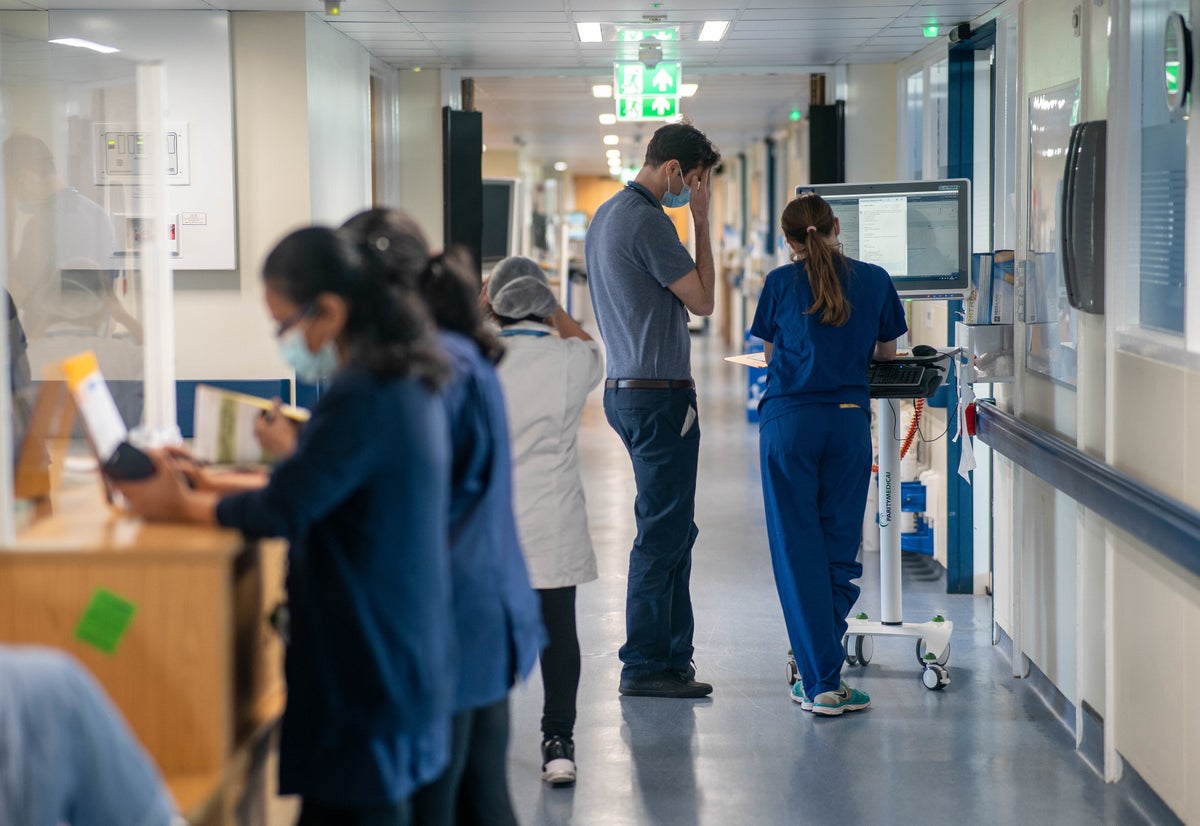
The NHS is in a “full-blown crisis” and will miss targets to cut waiting lists for cancer and surgery, MPs have warned in a damning report.
The cross-party Public Accounts Committee said NHS England is already “falling short” of promises made to clear the national treatment backlog by 2025.
In a report published today, the committee said the government and NHS were “over-optimistic” with their plans and that targets set for 2024/25 had become “unachievable”.
It added that waiting times for cancer treatment were “especially worrying” and that being so “off track” means more patients are left “waiting too long”. The NHS will not meet its target to reduce the number of patients waiting for more than two months for cancer care by 2023 to pre-pandemic levels, it added.
Have you been impacted by this story? email rebecca.thomas@independent.co.uk
Dame Meg Hillier MP, chair of PAC, said: “Despite a significant cash injection meant to begin to help the recovery from the pandemic, the NHS is in full-blown crisis and all the metrics are going in the wrong direction.”
She said evidence given to PAC shows the NHS will not achieve its plan to reduce its 7 million backlog by 2023, meaning the nations’ health and quality of life will “go backwards”.
“That is simply shameful, and totally unacceptable in a nation as wealthy as ours,” Dame Hillier said.
The report warned only 62 per cent of cancer patients were treated within 62 days over the first five months in both 2022 and 23, against a target of 85 per cent. September 2022 also saw the worst-ever recorded quarter for cancer waits.
It said that, considering performance to date, the NHS’s target to reduce the number of patients waiting more than 62 days for cancer treatment to pre-pandemic levels will not be met by March 2023.
MPs also criticised a “dearth of advance planning” to ensure the NHS has enough staff and enough capacity for extra diagnostic tests and treatments – much of which was “already needed before the Covid-19 pandemic”.
They added that, for the recovery plan to succeed, the capacity of adult social care must improve so people can be discharged from hospital in a timely way.
The PAC report also said NHS England must shift its focus which would mean “difficult trade-offs” to address inequalities facing patients across different areas.
It added: “NHS England must lift its sights and refocus on its strategic duty to offer direction to the whole NHS. This means difficult trade-offs to address historical inequalities between areas, to reconstitute a depleted, exhausted workforce that is on its knees, and to rebuild a crumbling physical estate that is in dangerous condition in many places.
“We do not expect the NHS to achieve the significant and ambitious targets of its current recovery plan, but it must now step up and show that leadership for a realistic way forward, with targets that have patients seeing the real improvements.”
Tim Gardner, senior policy fellow for the Health Foundation, said: “Today’s report is a reminder that tackling the backlog needs wider action to address pressures on social care and NHS workforce shortages, which are the result of long-term failures in government policy.”
Sir Julian Hartley, chief executive of NHS Providers, said trusts areas working hard to tackle backlogs and meet their next target of eliminating all patients waiting more than 78 weeks.
However, he said, “a very tough winter, the impact of industrial action and vast workforce shortages are just some of the challenges threatening to undermine these efforts”.
“The government opening talks with all striking unions will be key to resolving pay disputes and averting more strikes,” he said.
His warning comes as more than 36,000 junior doctors are set to strike next month for three days in a move which is expected to halt any planned surgeries or treatments.
Sir James Mackey, national director of elective recovery at NHS England, said there were “a number of factual errors” in the materials produced by MPs.
He added: “The milestones set out in the plan, published just over a year ago, were based on widely shared and agreed assumptions about low prevalence of Covid. Even though there have been much higher levels of Covid, NHS staff hit the first milestone, virtually eliminating two-year waits, and have made significant progress on the second by cutting the number of 18-month waits by over a quarter in the last month – facts that have been ignored in this release.
“On cancer, thanks to the efforts of the NHS, record numbers are coming forward for checks, allowing staff to do the clinically correct thing by prioritising the most urgent cases – the health service cannot help those who do not come forward.
“As ever, we need the public to know that the NHS is there for them and people should continue to come forward for the care they need if they have health concerns.”
A department of health and social care spokesperson said the NHS “has already made strong progress in tackling the Covid backlogs”, adding: “We are working to reduce the 62-day cancer backlog – which has fallen nine per cent since peaking in 2020 – but we know there is more to do.
“We have opened 92 community diagnostic centres that have delivered over three million tests, scans and checks to detect cancer and other conditions as early as possible, with 19 more opening this year.”







